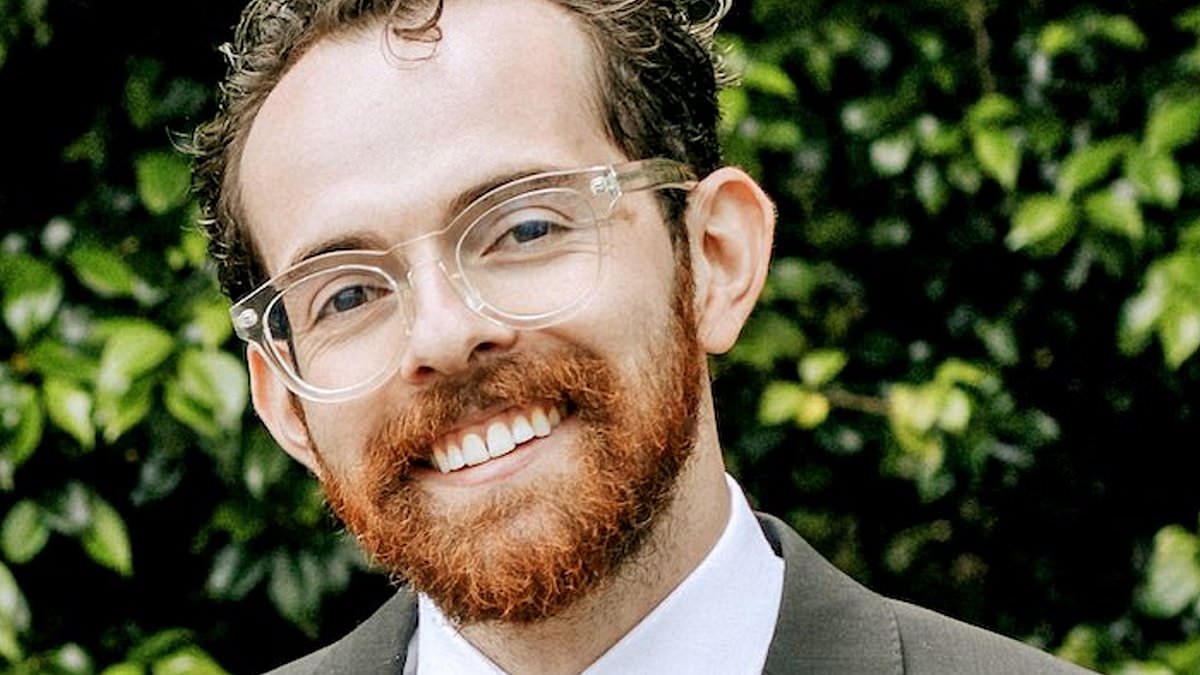A law student is suing Cambridge University for discrimination after he failed his PhD and delayed his career working as a barrister.
Jacob Meagher is seeking ‘substantial damages’ from the world famous institution, alleging he was the subject of disability discrimination and victimisation following the failure of his law PhD.
He claimed that he was placed at a ‘substantial disadvantage’ while writing his 100,000 word thesis, following a fallout with the university which saw him restart his PhD in 2019.
Mr Meagher had asserted in court documents that he was ‘subjected to a number of detriments, such as the provision of a single supervisor who did not hold a position with the Faculty, and no advisor’.
This meant he was ‘less able than other candidates of the same ability to produce a singular lengthy and multifaceted piece of work such as a PhD thesis’, the High Court was told.
Mr Meagher also claimed that his oral ‘viva voce’ interview, where he was questioned about his thesis by two examiners, caused ‘significant damage’ to his health.
He ended up failing the examination, meaning he missed out on a opportunity to take up a tenancy at a ‘particular set of chambers’ and therefore ‘suffered a substantial loss of anticipated earnings’.
Details of Mr Meagher’s claim emerged in a court ruling which denied him permission to sue five members of Cambridge’s academic staff as well as the university itself.
Outlining the claim, the judge said: ‘Mr Meagher…is a student at the University of Cambridge…undertaking a PhD in law.
‘[He] did not successfully pass his final viva voce examination of his doctoral thesis.
‘He issued a claim against the University, together with five named individuals employed by the University.
‘The claim alleges disability discrimination and victimisation of various kinds under the Equality Act 2010, breach of contract and breach of common law duty of care.
‘[He] sought damages, on the basis that the non-completion of his PhD led to the lost opportunity to take up a tenancy as a barrister at a particular set of chambers and that Mr Meagher has, as such, suffered a substantial loss of earnings.’
‘On 26 April 2023, the outcome of Mr Meagher’s viva was delivered,’ the judge continued. ‘They declined to recommend the award of PhD but indicated that Mr Meagher should be allowed to revise his thesis and resubmit it.’
Court documents also stated that the University’s Disability Resource Centre had recommended that at the viva, examiners follow a set of guidelines, produced as part of a Student Support Document (SSD), to help him.
These included asking specific rather than general questions, using the active, rather than the passive, voice and allowing him pauses and breaks after questions…to allow him to ‘mentally retrieve the words or information that he needed in order to answer’.
But the examiners were not provided with the SSD itself, meaning ‘their attention had not been drawn to the disabilities and need for adjustments’ for Mr Meagher.
Mr Justice Constable was told that the case was first brought in March 2024, almost a year after the result of his PhD. He
He also successfully obtained an injunction against the University in July 2024, which stated that ‘no steps shall be taken in relation to the Claimant’s PhD course or examination without the consent of the parties until the conclusion of these proceedings or further order.’
Following the initial 2024 hearing into the case, the law student’s application to sue the academic staff was dismissed as were two aspects of his breach of contract claim.
Mr Meagher appealed against these rulings, which led to the latest judgement, in which Mr Justice Constable upheld the original decision regarding the individual faculty members but agreed to reinstate the breach of contract claims.
Mr Meagher told : ‘This case is not about particular adjustments; it concerns the conduct of an institution which is well known for its poor record when it comes to disability, dispute resolution, and student mental health support.
‘Cambridge Faculty of Law, and University should be world leading when it comes to disability and dispute resolution, that this is not the case, and an injunction was obtained raises important questions which the University has shown it does not wish to confront, this is to the detriment of all.’
